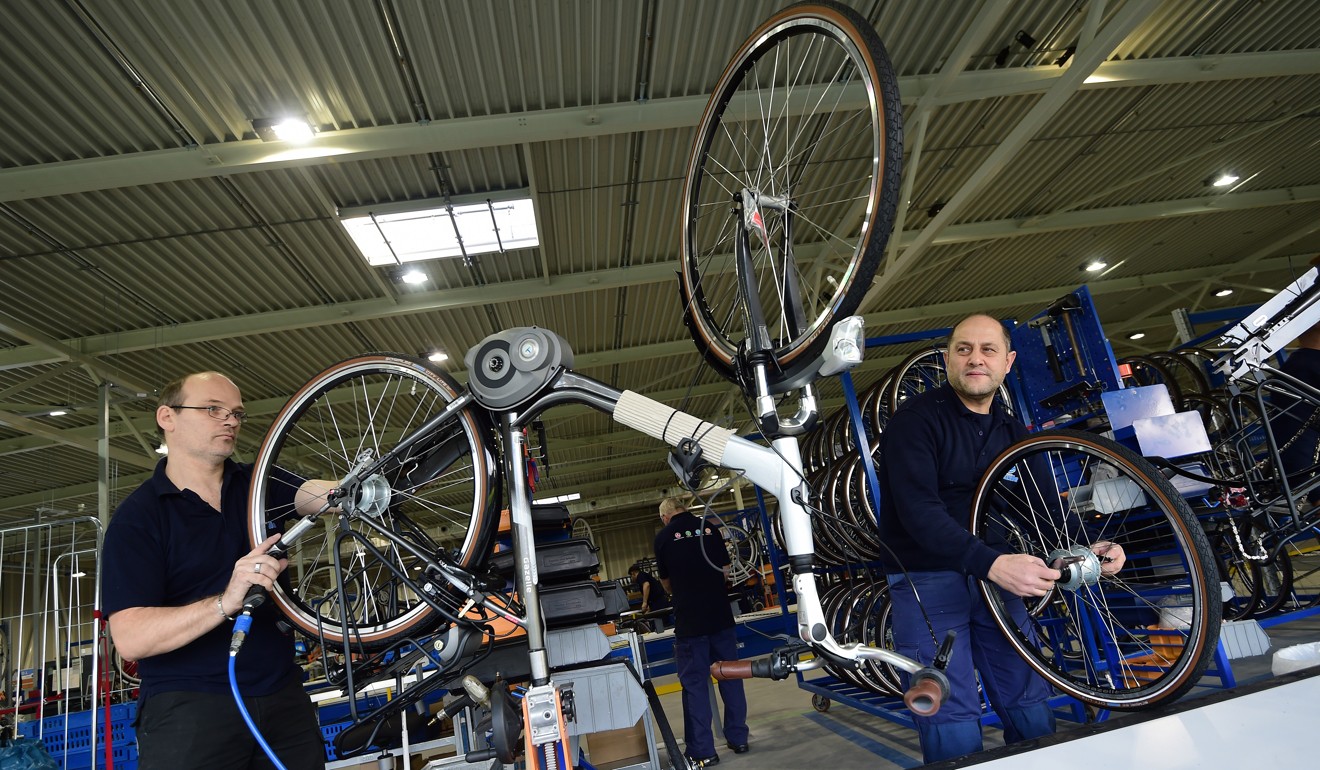
War on wheels: Europe’s love-hate relationship with cheap Chinese electric bikes
- Movement in Brussels towards imposing taxes on imports from China has sparked a battle over e-bikes between consumers, companies and conservationists
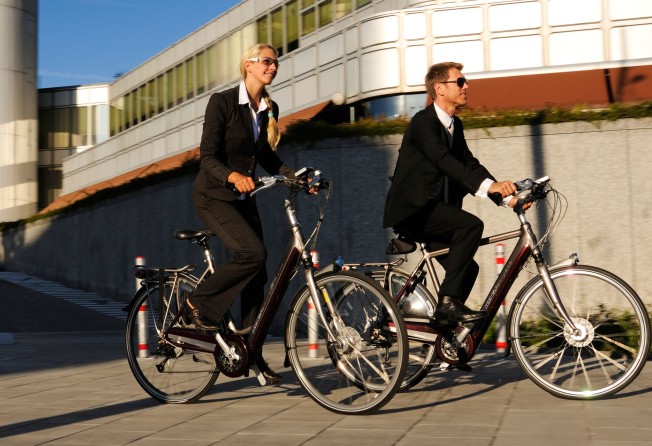
First they were hailed as Europe’s green saviours – cheap, imported Chinese electric bicycles that could help the continent tackle traffic, environment and health issues all at once.
Now the European Commission considers them a threat to sales of pricier bikes made by European companies.

Following a year-long inquiry, the European Commission (EC) wants to impose duties on Chinese-made electric bicycles it claimed were being sold at heavily-discounted prices by manufacturers it said benefited from state subsidies.
The move appears to be the opposite of an EU decision last August to scrap five-year-old trade restrictions on solar panels from China, ignoring local producers’ concerns it would flood the market with cheaper Chinese products. However, more recent trade tensions stemming from US President Donald Trump’s trade war with Beijing may have something to do with the proposed tariffs.
The e-bikes typically go for a fraction of the price of those made by leading European manufacturers such as Riese & Muller and George Fritzmeier, according to Michael Barnard, chief strategist with TFIE Strategy and editor of its journal The Future is Electric.
“European citizens wanted access to less expensive electric bicycles, as those produced by EU manufacturers sell at an average price of over US$5,200,” he said.
That compares with prices as low as €300 (US$343) offered on many websites for Chinese products, some of which are about the same quality but subsidised, according to Barnard.
“Quality is often comparable at lower price points than European manufacturers currently offer, but at the lowest price points the Chinese bikes have decidedly inferior components and battery lives,” he claimed.
In December, EU members backed new anti-dumping proposals, clearing the way for tariffs of up to 79.3 per cent to be given the green light at the end of January 2019, although they would not come into effect for another year.
That followed a report by the EU in November that said Chinese bike makers benefited from “state interference” which undercut competitors in Europe.
Among the firms named were Geoby, Fuji-Ta and Taiwan’s Giant – the world’s largest bicycle maker which has factories in mainland China and Europe. The report said the companies had caused “material injury” to EU manufacturers.
The European Bicycle Manufacturers Association (EBMA) – which represents more than a quarter of the continent’s e-bike makers – agreed and filed a complaint to the EC against its Chinese rivals in September 2017.
EBMA said imports of Chinese e-bikes into Europe soared 250 per cent during the investigation – October 1, 2016 to September 30, 2017 – as manufacturers in China sought to avoid future tariffs.
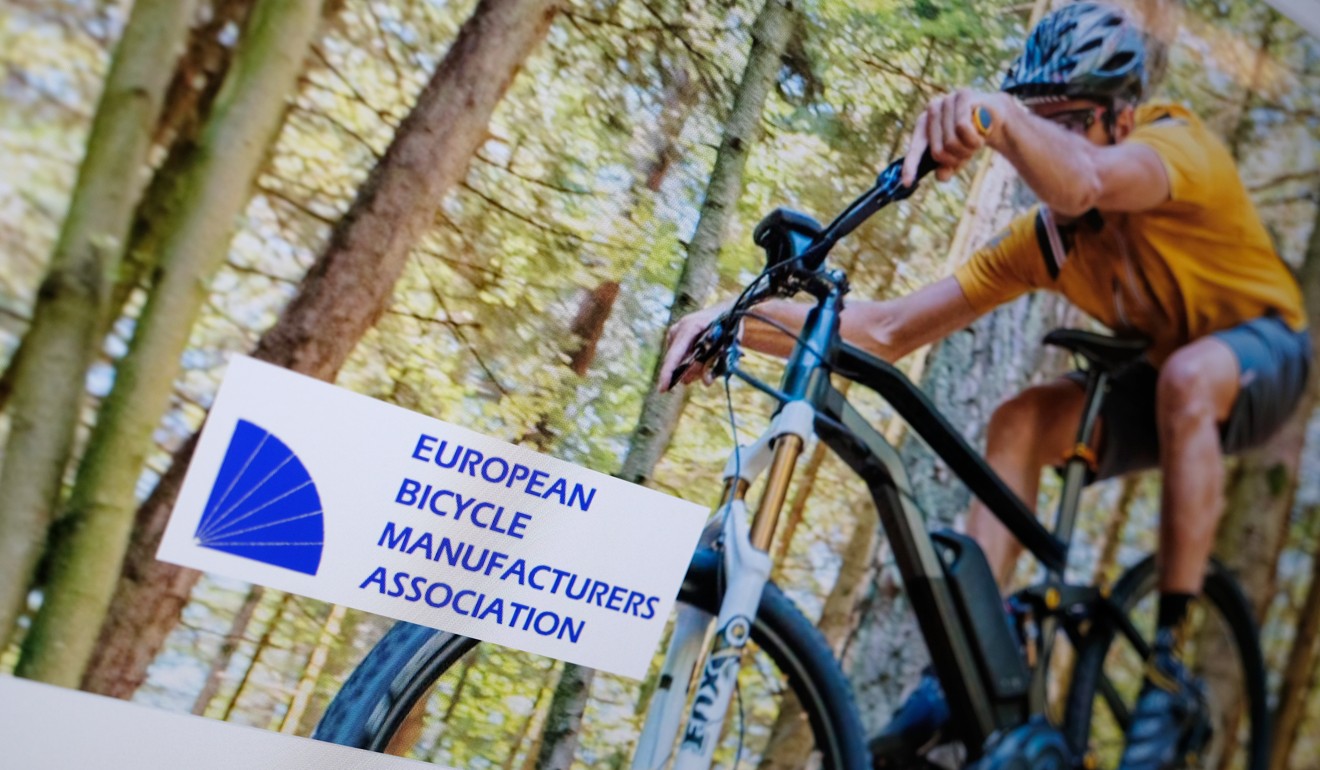
But European bike makers have been accused of overstating the negative impacts. The Collective of European Importers of Electric Bicycles (CEIEB), claimed profit margins only declined by 0.4 per cent over the same period.
Besides Chinese bike importers, critics of the EC’s duty decision include cycling and environmental lobby groups.
“There is no injury to European manufacturers,” claimed Annick Roetynck, director of the Light Electric Vehicle Association LEVA-EU, a lobby group for 22 small to medium bike businesses from eight European states. “Most of them import components from China themselves at a very large scale, and are thriving.”
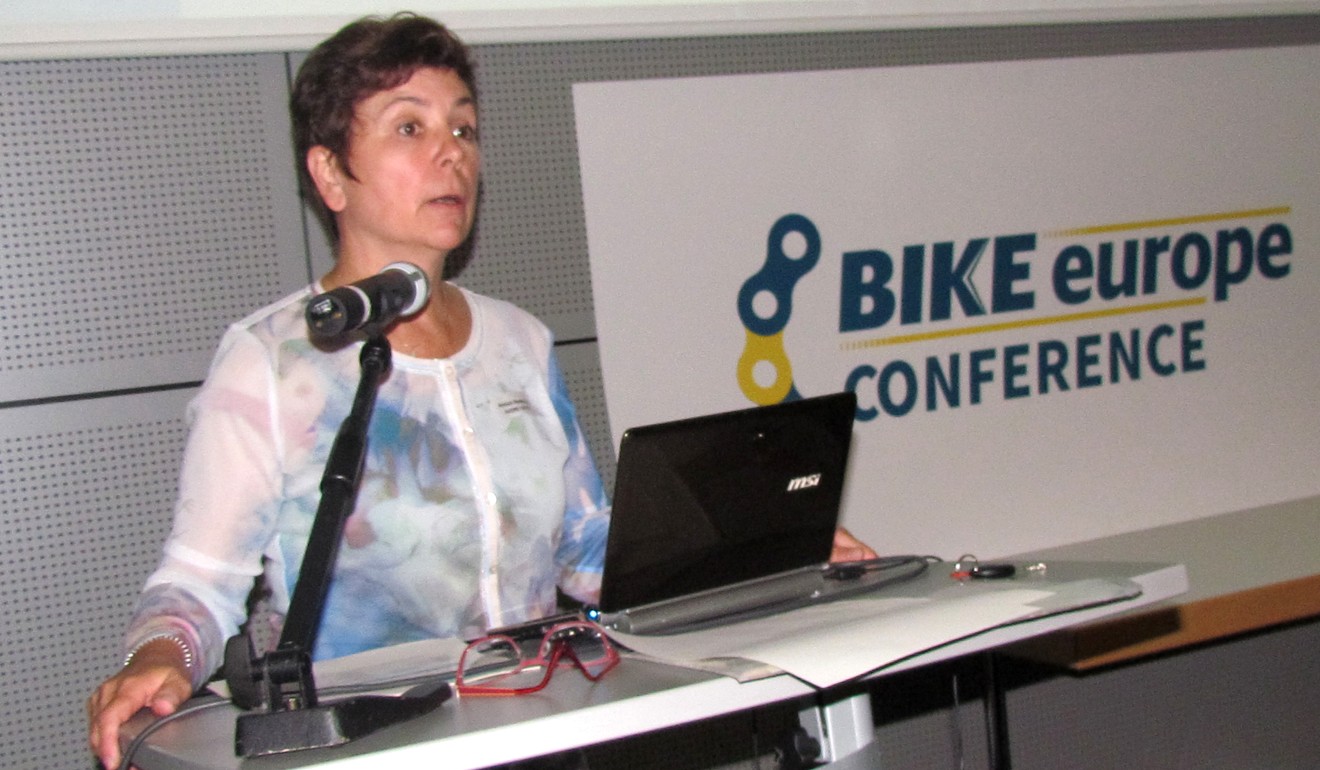
Roetynck said dark days were ahead for bike companies and consumers.
Already, provisional taxes of up to 83.6 per cent introduced in July were having a negative effect on supply chains.
“The surging market for e-bikes in Europe – around 2 million bikes a year – is now under threat, just as it was really starting to gain traction,” she said. “These duties are nothing but protectionism.”
As some companies run low on stock, they may even go bust Roetynck warned, as e-bikes risked becoming unaffordable for many people.
So what does the future hold? Jakub Ditrich, an e-bike promoter in the Czech Republic, has been involved in the roll-out there of Chinese bike-sharing company Ofo.
He slammed the move to impose tariffs, as well as EBMA claims the relocation of Chinese e-bike production to Europe would create thousands of new jobs by the first half of 2019.
“The jobs will be for Chinese workers who have been imported to Europe by Chinese ventures being forced to move their competing factories here,” he insisted.
Ditrich accused the EBMA and EU of “ruining the rising e-bike business in Europe”.
At the same time, EBMA wants to “stamp down on circumvention of tariffs too”, according to Mark Sutton, editor of Cyclingindustry.news, referring to reports of companies trying to bypass taxes by shipping bikes in ready-to-assemble form.
“[This] would see those shipping the unassembled component parts for European assembly stung with tariffs,” Sutton said. “Prior European Commission investigations are said to have uncovered evidence of this practice.”
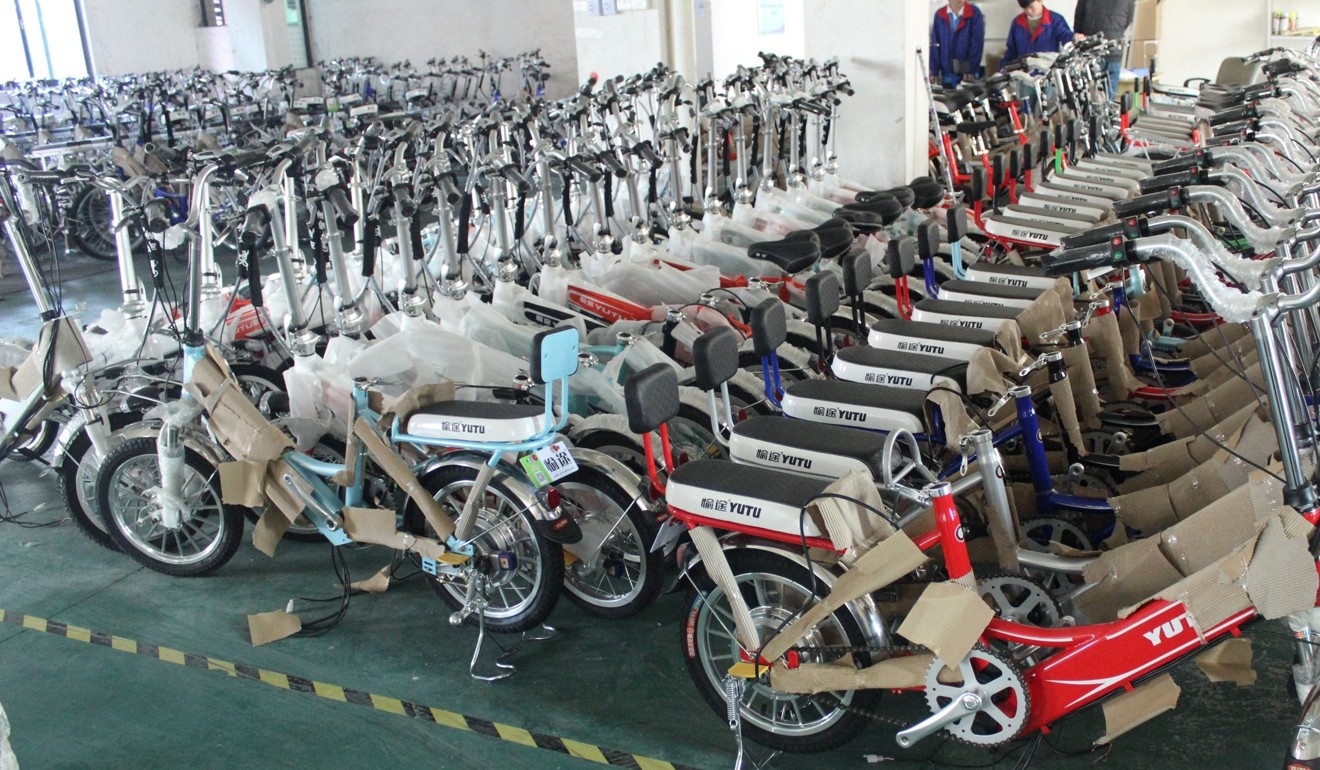
According to Bike Europe, the leading trade journal for the European bicycle and e-bike market, when import and export companies sought to sidestep anti-dumping duties on standard Chinese bikes introduced by the EC in 1997, Brussels bit back.
Chinese and European firms shipped bikes that were not fully assembled, declaring them parts instead of bikes. But “to counter this abuse”, the EC extended duties it had introduced on bicycle imports, to include certain bicycle parts.
Observers feel it might consider the same “anti-circumvention duties” if anyone tries to skirt any new e-bike tariffs.